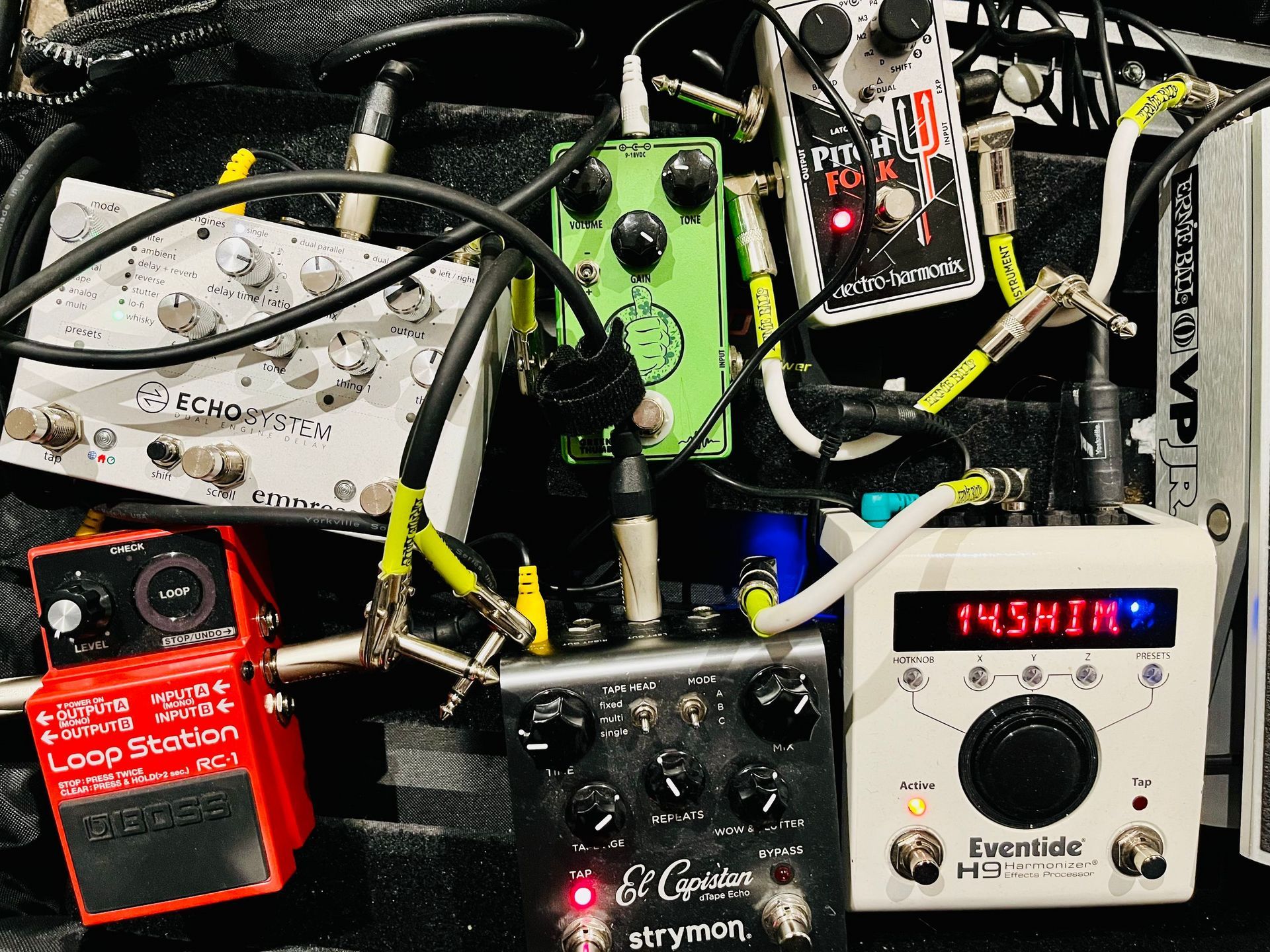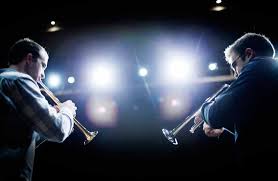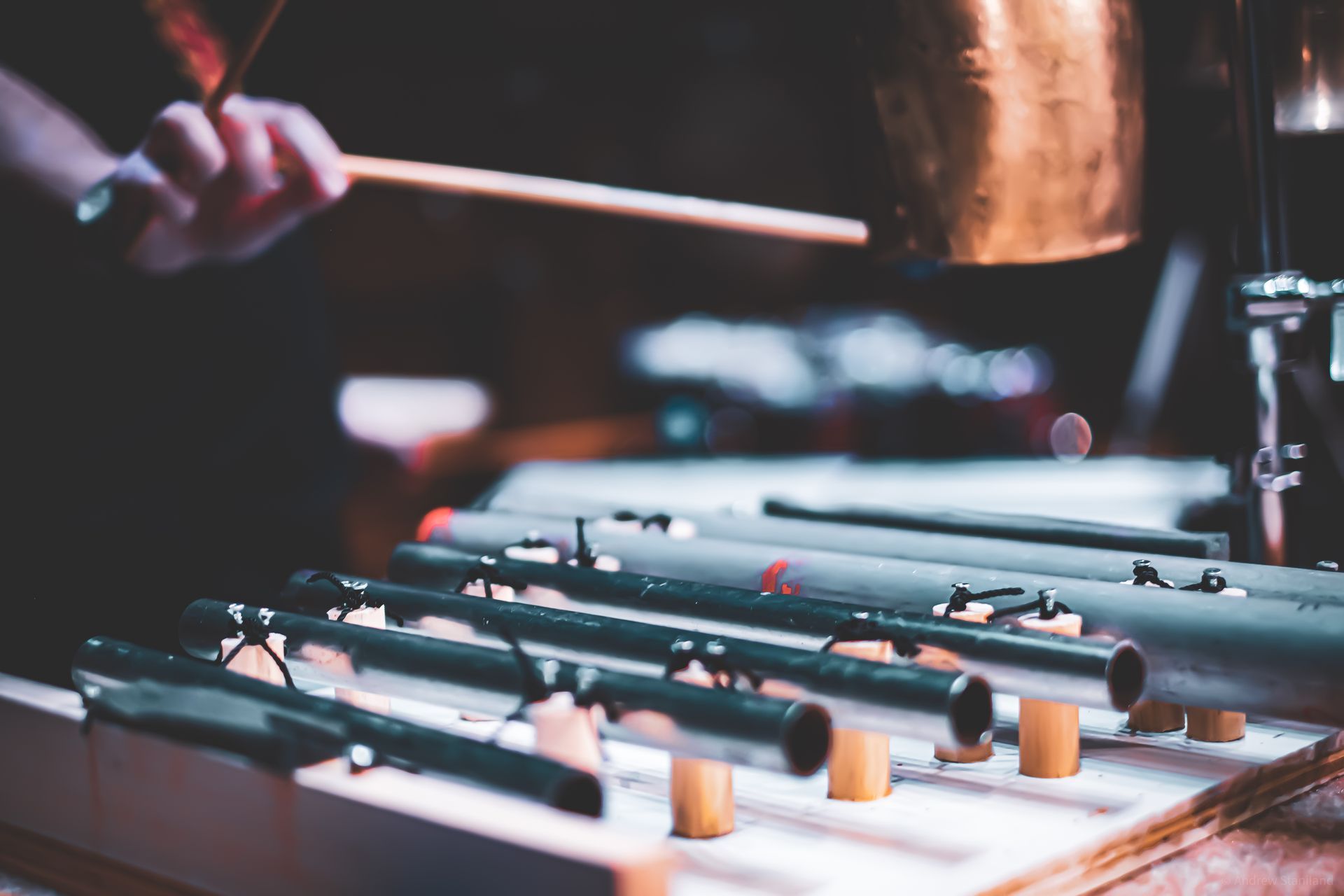Jubilant Entanglements: concerto for Guzheng, Strings, and Percussion
Composing a work for Guzheng
Writing a work for a mixed cultural ensemble comes with opportunities and challenges. The Guzheng is a Chinese instrument with an incredible history over 2000 years old. It has 21 strings, and is generally pentatonic in nature (at least on the right side of the instrument - the wrong side is a microtonal wonderland explored in movement 3 - see video below). The string orchestra comes from a Western classical tradition only a few hundred years old, and has an enormous chromatic range. Percussion has different origins again, being both perhaps the most ancient and diverse instrument group. Percussion instruments can and do come from anywhere: marimbas from Central America, gongs from Indonesia, and drums from Africa. Put all this together with Jing Xia, a master improvisor and Guzheng player at the helm, and you have all the ingredients necessary to create something fascinating.
I approached this work differently - I wanted to collaborate, respect the instruments and their players (especially the guzheng, which I know comparatively little), and approach the work not only as a composer, but also as an improvisor and guitarist.
While the score is notated conventionally, improvisation plays an important In the conception, composition, and performance of the work. The piece began with an improv session - Jing on Guzheng, and me on guitar and electronics. I used the recorded session (linked above) as a reference for the various motifs, themes, and the general sound-world of the concerto. It was an inspiring and liberating process, as I find that improvisation comes with an inherent joy, lightness and spontaneity that can sometimes elude a more ‘serious’ composition process. There are sections of the work where Jing’s part is improvised, much like jazz solo in a big band chart, though quite different in sound. More unusually, the orchestra and conductor are also given a chance to improvise. In one case there is a little game (titled ‘jeux’) where the conductor can call upon a library of riffs, essentially composing the orchestral part in real time. The electronic effects via the guitar pedal board I used in the original session will also be used in concert , but on the guzheng instead of the guitar. That’s right - a 2000 year old Chinese instrument through a guitar pedal board.
image of pedal board used on the improvisation, and in concert

New Paragraph
As I composed the piece, Jing and I were in frequent correspondence on Facebook. We riffed on all kinds of ideas as to what the piece could be about, and what we were thinking and hearing while listening back to our improvisations. We spoke of weaving, patterns, strings, processes, string theory, quantum entanglement, the seasons and how there is really no moment when fall becomes winter or spring becomes summer - yet they somehow arrive (even here in Newfoundland!). These ideas eventually coalesced into a 4 movement piece we decided to call Jubilant Entanglements. The movements are I jubilance, II pattern / process, III nightshade, IV postlude.
It is hard to know where improvisation ends and composition begins. For me they are different expressions of the same musical imagination. It has been a joy to write this piece as it brings my voice as a guitarist, improvisor, electronic musician, and composer together in a novel way. Thanks to Jing Xia - Jing was a huge part of this piece from start to finish, and I could not have even begun without her collaboration. Thanks to Marc David, Hugh Donnan and the NSO for believing in this project. And finally thanks to my dear friends in the PhoeNX Ensemble who have taught me so much about working with cross-cultural ensembles.
Andrew Staniland. January 2023, St John’s.
Hear the 'wrong side' of the Guzheng - sampled in Kontakt / Logic Pro Xph
Meet Jing Xia



